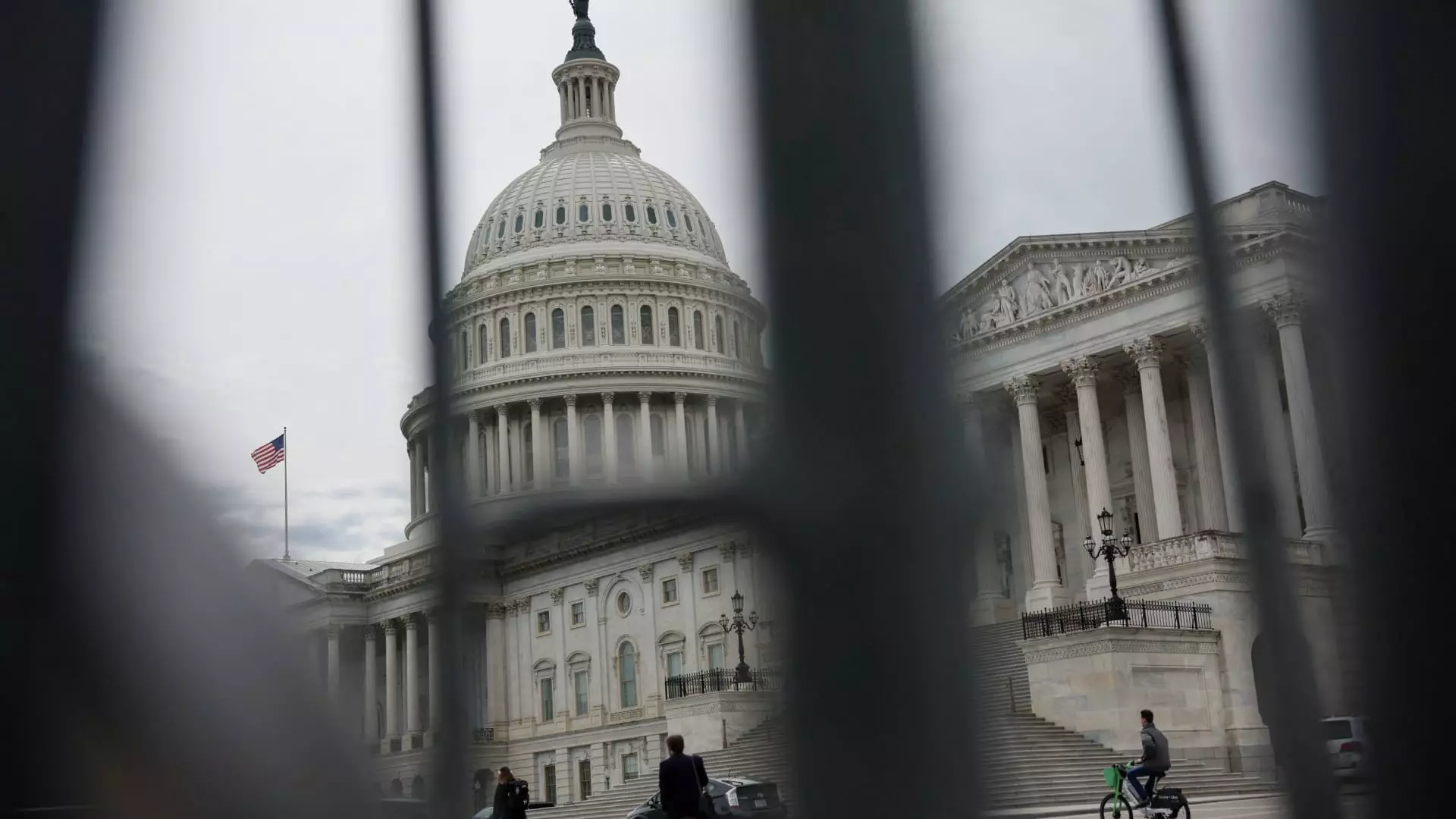The recent approval of a Republican-led budget blueprint by the U.S. Senate signals a troubling shift in priorities that may deepen the already widening rift in American society. The proposed budget, aimed at extending Donald Trump’s 2017 tax cuts while simultaneously proposing substantial cuts to government spending, reveals the lengths to which some lawmakers are willing to go to benefit the affluent at the expense of the vulnerable. With potentially dire consequences looming on the horizon, one must question whether this legislative trajectory aligns with the principles of fairness and equity upon which America prides itself.
After an exhausting all-night debate, Senate Republicans celebrated a legislative maneuver that allows them to bypass the filibuster, enabling them to push through tax cuts without needing bipartisan support. While they claim the fiscal implications will only add around $1.5 trillion to the federal debt, independent analysts reveal a far bleaker picture: an anticipated increase of approximately $5.7 trillion over the next decade. This discrepancy highlights a troubling trend in our political landscape—an alarming willingness to distort facts to serve one’s agenda.
Misguided Priorities: The Case for Social Responsibility
The heart of this budget debate comes down to a fundamental question: who benefits from these fiscal policies? Republicans, backed by figures like Senate Budget Committee Chairman Lindsey Graham, argue that the expiration of tax cuts would impose an unbearable burden on average Americans, resulting in significant tax hikes. Yet, the irony is palpable—by prioritizing tax cuts for the ultra-wealthy while proposing cuts to essential services like Medicaid, they risk deepening economic inequities. The narrative crafted by GOP legislators is tantalizing but ultimately misleading; tax cuts do not trickle down as robustly as their proponents claim.
Democratic leaders, including Senate Minority Leader Chuck Schumer, voice alarm at the potential fallout of these policies. Describing the Republican plan as “poison,” he warns that it ultimately serves to enrich the wealthiest rather than elevate struggling families. As the fiscal burden shifts toward social programs, many low-income Americans who rely on Medicaid find themselves teetering on the edge of crisis. The message is clear: the political elite’s tax policies threaten to disassemble the social safety net that provides critical support to society’s most vulnerable.
Resistance and Reflection: A Call for Transparency
The most contentious aspect of the proposed measures is the cutting of Medicaid. Senator Bernie Sanders, alongside other advocates for social justice, acknowledges the catastrophic impact these cuts would have on millions, particularly children who depend on this health care program. Despite assurances from Republican leaders that they would strive for “efficiency” rather than outright cuts, skepticism permeates the conversation. What does “efficiency” mean when it comes to critical health care programs? History has shown us that efficiency often substitutes compassion—an unsettling reality that should concern all Americans.
Even some voices within the Republican Party dissent against the overwhelming push for spending cuts. Senator Rand Paul encapsulates this contention by questioning the juxtaposition of austerity and increased borrowing. This internal conflict reflects the broader uncertainty coursing through a Republican agenda often anchored on fiscal conservatism. If the GOP stands firmly against rising national debt in principle, how can they justify these trillion-dollar tax cuts that economics scream will exacerbate such debt?
The Broader Implications: Social Commentary and Economic Reality
Once the dust settles in Congress, it’s clear that the proposed budget is more than just a fiscal document; it’s a mirror reflecting the values and priorities of those who wield power. The plan’s emphasis on border security and immigration enforcement over social welfare initiatives paints a grim picture of a society that is slowly forgetting its foundational ethos of compassion and community. When an administration prioritizes deportations over care for its citizens, it risks undermining the very fabric of society.
While the debate unfolds, the implementation of these policies may very well push Americans into a corner. As the social safety net is frayed, low-income families face increasingly precarious circumstances while wealthier individuals enjoy tax breaks that contribute to the nation’s fiscal imbalance. The disparities drawn by these budgetary choices may fuel societal unrest and disillusionment with the political process, urging citizens to consider what justice and equity truly mean in an economic framework.
In a moment where leadership should symbolize responsibility and foresight, the Republican budget proposal raises serious concerns about our collective future. The implications for healthcare, education, and public welfare demand reflection and dissent from those who truly value a balanced, equitable society. It is an era that calls for unity against misguided avarice, as we strive towards a nation that uplifts and supports all its citizens, rather than prioritizing the wealth of the few.

Leave a Reply